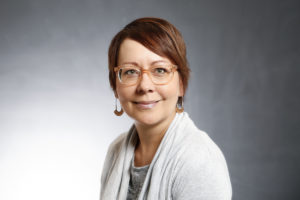Legacy giving is altruistic and can come with financial advantages to the giver. 
Yet, at his passing, Franklin left behind something in addition to a life of great work.
In 1789, just before his death, Franklin revised his will, leaving 2,000 sterling pounds – the equivalent at the time to about $9,000 – to be distributed as low-interest loans to tradesmen in Boston and Philadelphia. He was honoring his humble beginnings as a printer, which led him to a career of public service.
He wrote at the time, “Good apprentices are most likely to make good citizens. I wish to be useful even after my death … forming and advancing other young men that may be serviceable to the country.”
Franklin also stipulated that a portion of the funds go toward public works 100 and 200 years after his death. He expected the funds to grow, leaving even more money to support entrepreneurs and boost the economies of two U.S. cities that had been his home.
The balance of the trusts, valued at $6.5 million in 1990, eventually went to The Franklin Institute in Philadelphia and the Benjamin Franklin Institute of Technology in Boston.
We will never know the full impact or ripple effect of Franklin’s bequests; they helped people and communities grow in immeasurable ways. His legacy continues even today, with the institutes supporting excellence in science and technology.
Planned giving is also known as legacy giving – philanthropy that has impact long after the benefactor’s death. Legacy giving is altruistic and can come with financial advantages to the giver. Still, it’s not all that popular. Less than 7% of Americans leave a charitable bequest in their estate plan or will.
We recognize and promote this type of uncommon generosity because of its powerful and lasting benefits to communities. A recent local example is sure to positively impact current and future generations in Northern Arizona.
Robert S. Larson and his wife, Loretta, Sedona residents and founders of Larson Newspapers, left a property gift valued at $3.2 million to Health First Foundation Northern Arizona. The gift was realized in 2021 after the passing of Robert (2016) and Loretta (2020).
The Larsons were devoted community members who valued local history, news, development and education. They viewed health and well-being as instrumental to personal and community growth.
To honor the Larsons and their generous gift, Health First Foundation will match each dollar given, up to $50,000 in total donations, to benefit the West Sedona Wildcat Extended Day Program, a before- and after-school childcare option that combines learning, socializing, healthy eating, exercise and play. Activities help build self-sufficiency skills and include gardening, crafts, painting, knitting, growing food and cooking.
Funded through grants and other support, the Wildcat Extended Day Program is free to parents of kindergarten through 5th grade schoolchildren. It aims to help parents with childcare and the Sedona business community in attracting more employees. The need is great, as many children at West Sedona Elementary qualify for free or low-cost lunch under federal law, having family incomes at or near the federal poverty level.
Well-run extended school programs have proven benefits for children, working families, businesses and the community at large.
Children benefit from additional educational and social hours in a safe and supportive environment, supplemental nutrition, and physical activity.
Parents benefit by knowing their kids are in a safe and nurturing place before and after school. Likewise, businesses reap rewards because parents can be employed and work with peace of mind. Before- and after-school programs benefit communities by forming resilient youths and reducing risky childhood behaviors.
The Wildcat Extended Day Program contributes to academic achievement, development, healthy lifestyles and strong communities – all things valued by Robert and Loretta. Their thoughtful planning and generous gift are sure to have positive outcomes for a lifetime and beyond. QCBN
By Nancy Wiechec
For additional information on the West Sedona Wildcat Extended Day matching gift program, visit https://healthfirstforall.org/news. To learn more about legacy giving, call 928-223-9250.
Nancy Wiechec is a former journalist working for Health First Foundation as a storyteller and communications manager. Keep up with Health First news on Twitter @HealthFirstAZ.







Leave a Reply